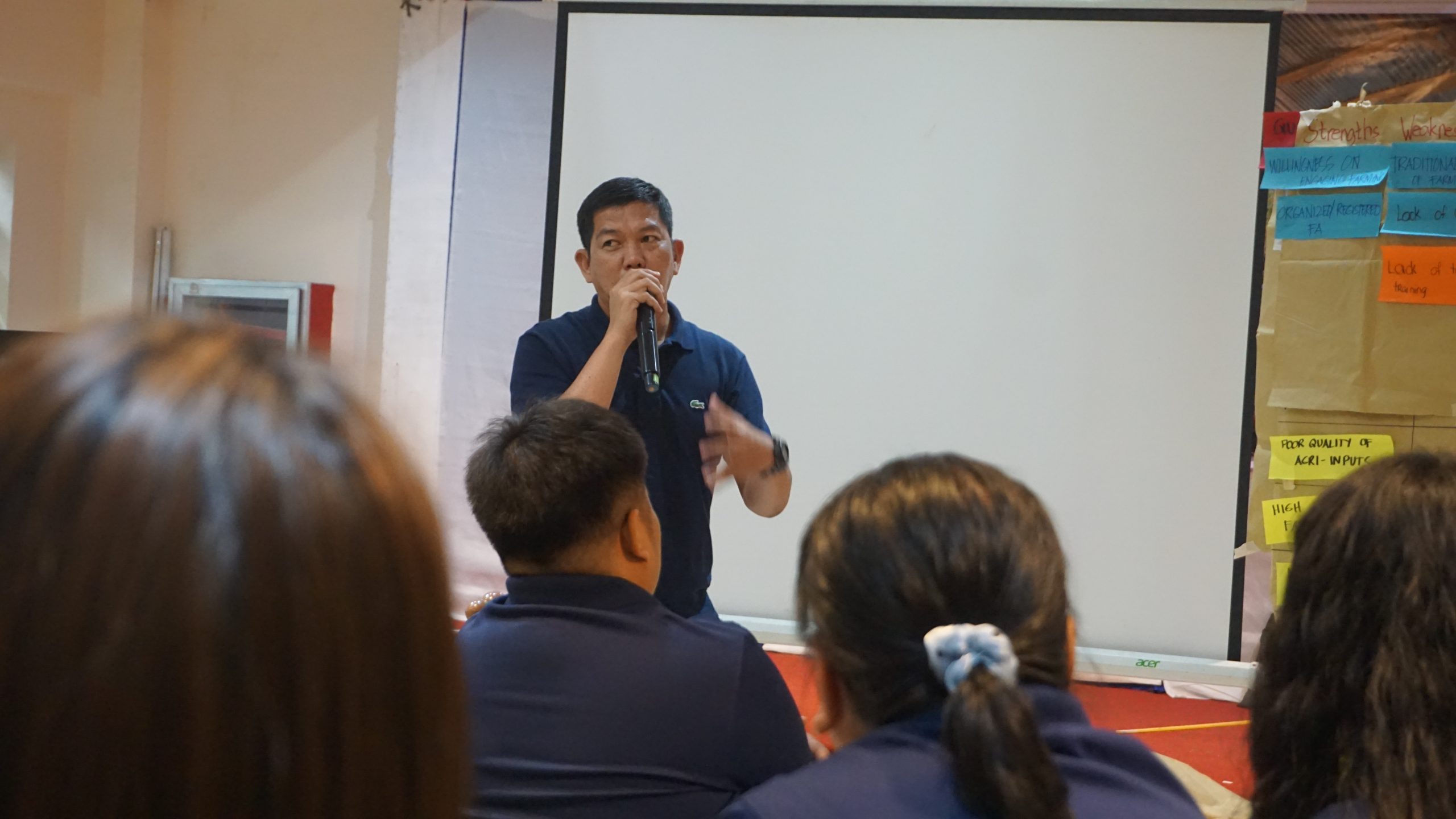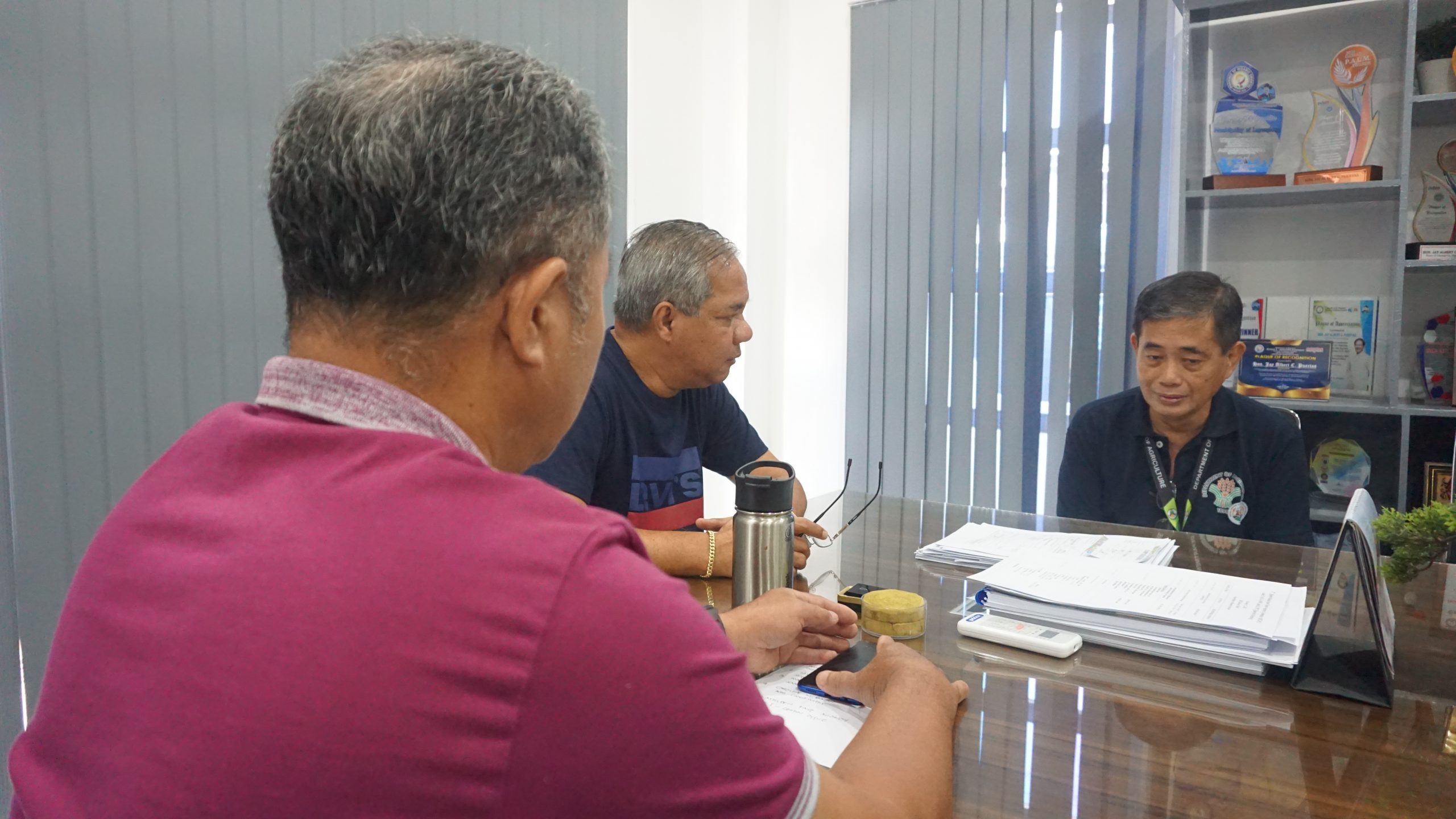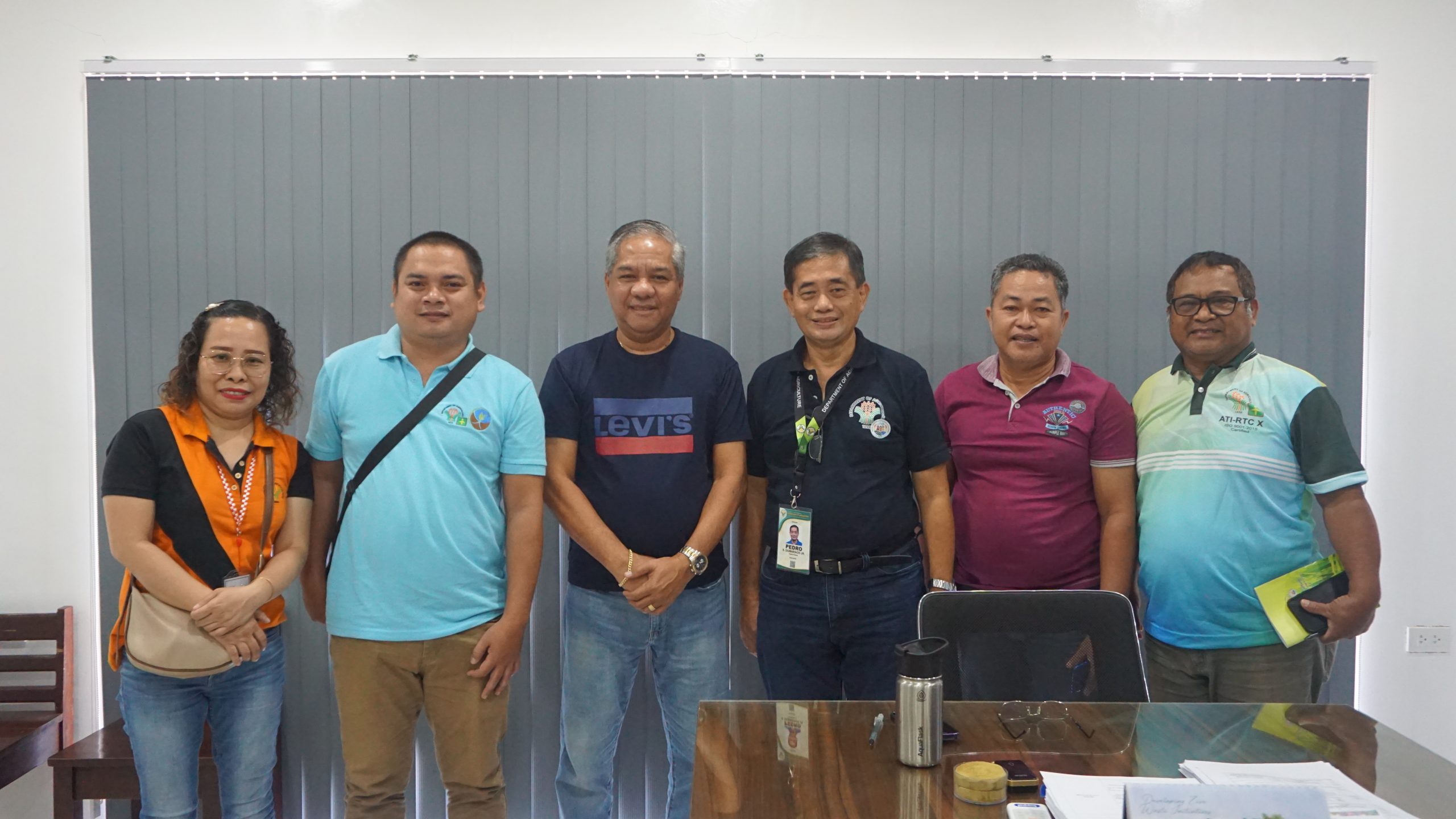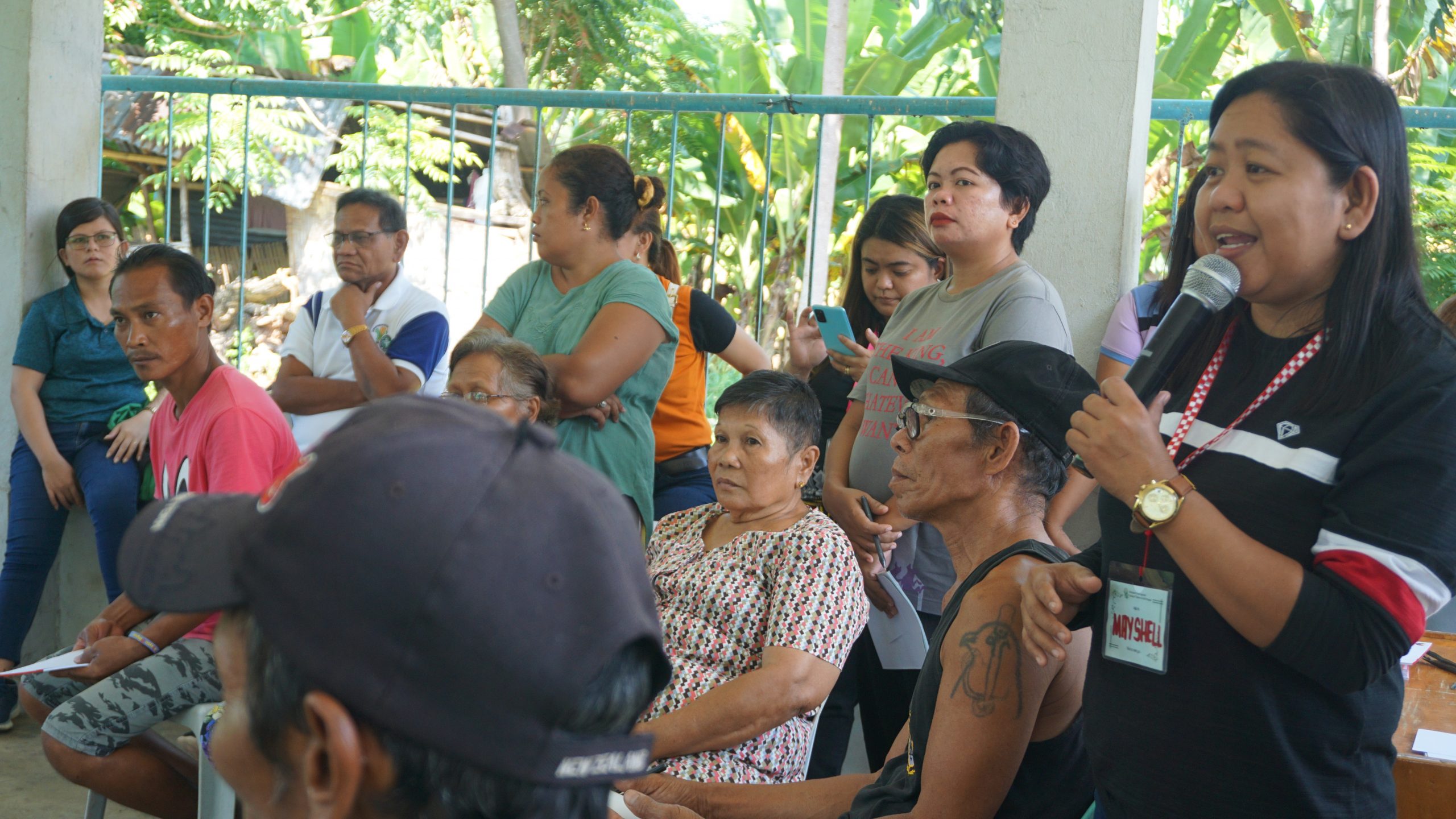Establishing relaxed rapport in facilitating the Participatory Rural Appraisal (PRA) allowed the practitioners to smoothly learn from the local people directly and on-the site while gaining insight from their physical, technical, and social knowledge. The value of this action manifested among the farmers during the social preparation simulation activities conducted to barangays Manaol and Kauswagan in Misamis Oriental last October 18-19, 2023.
Prior to the actual conduct of PRA, with his expertise in the field, SAAD National Deputy Director Dr. Pedro S. Dumaraos, Jr., reminded the participants during the Training of Trainers (ToT) that activity is not just ordinary training. Cascading what they have learned is very critical in developing the training needs and delivering effective presentations to the farmers.
Among the participants who joined the activity were thirty-six (36) staff from Food and Production Livelihood (FPL), Marketing Enterprise and Development (MAED), Social Preparation and Program Management (SPPM), Administrative and Procurement (A&P), Area Coordinators, Information Officer (IO), and Information Technology and Database Development (IDD) units of Regions 9, 10, and 13.
“We have to embrace that development is for all, lahat ay may opportunity para umunlad sa buhay [everyone has the opportunity to improve their living.] Kailangan palakasin ang FAs [FAs need to be strengthened], you have to integrate and immerse yourself with the community, be with the farmers. Kaisa kayo ng mga magsasaka [You are with the farmers]. Embrace what is poverty, what is development, and equality between men and women,” underlined Deputy Dir. Dumaraos.
Salient findings during the PRA
Locals are more able to generate and analyze information far beyond what is typically expected of practitioners when it comes to mapping, modeling, observing, quantifying, estimating, comparing, ranking, scoring, and diagramming (social, census, and health maps). The farmers in barangays Manaol and Kauswagan, Misamis Oriental were able to rank the problems in their communities as they perceived them.
The power of sequences of methods, being relaxed and not rushing, listening and not lecturing, and probing rather than skipping ahead to the next subject, while conducting the PRA had allowed the farmers to smoothly share their concerns and priorities at the same time allowing the facilitators to deliberate development actions in their communities aligned to the Program’s core components.
In light of the insights gained by PRA practitioners, Deputy Dir. Dumaraos further encouraged them to give their best to it with as much of the responsibility for the implementation to the nation’s marginalized communities, “If you choose to help the farmers, you have to fully dedicate yourself in supporting them throughout the entire process. Always think about the welfare of the farmers.”
Prelude to the conduct of needs assessment
Establishing clear policy and guidelines for Phase 2 implementation in Misamis Oriental, the National Program Management Office (NPMO) with DA-SAAD Northern Mindanao (Region 10) staff paid a courtesy visit to Mayor Jay Albert Puertas in the Municipality of Lagonglong to communicate the mechanics and flow of service of the Program’s next phase which the latter signified full support for complementary actions in the operation of the program.
Dr. Dumaraos restated SAAD Phase 2’s ultimate objective, which is to assist its recipients in running a community-based agri-business.
“Ang unang goal ng programa ay food security, then later on alalayan natin sila towards community-based enterprise. Bigyan natin sila ng kabuhayan upang magkaroon sila ng economic sustainability. We want to make sure that the information comes from the farmers themselves so we can provide them the proper assistance tailored to their needs,” he added.
(The first goal of the Program is to ensure food security; it then supports establishment of community-based enterprise. We will provide them livelihood projects for sustainable economic growth…).
Additionally, SAAD encourages the Local Government Units to engage in cross-functional collaboration to more successfully navigate difficult projects by fostering inclusivity and developing a sense of shared purpose. ###
Writers: Jennifer Valcobero and Kathleen Faye Agonoy, DA-SAAD NPMO Information Officers










Comments (0)